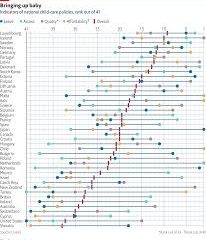The Evolving Role of Grannies in Family Life

Introduction
The role of grandmothers, often affectionately referred to as grannies, has become increasingly significant in modern family dynamics. As societies evolve, so do family structures and the responsibilities of grannies. They are not just caregivers but are becoming pivotal figures in promoting intergenerational connections and providing support to busy parents. This article explores the importance of grannies today and their contributions to both family and community.
Supporting Modern Families
Recent studies indicate that around 10% of children in the UK are being raised primarily by their grandparents. Grannies often take on the role of primary caregivers, particularly in families where parents may be working long hours or facing financial hardships. This shift has highlighted the essential support that grandmothers offer, not just in childcare but also in emotional and social development. Grannies provide a sense of stability and continuity in an ever-changing world.
Connection Through Technology
In today’s digital age, many grandmothers are embracing technology to maintain connections with their grandchildren. Video calls, social media, and messaging apps have become vital tools that facilitate communication, especially in families separated by distance. According to a survey conducted by Age UK, a significant number of grandmothers reported using technology to share daily moments and stays in touch with their family routinely.
Health and Well-being Benefits
Studies have shown that being involved with grandchildren can greatly benefit the health and well-being of grandmothers themselves. Engaging regularly with younger generations can reduce feelings of loneliness and isolation associated with aging. Activities such as babysitting, playing games, and even participating in family outings contribute positively to their mental and physical health. This reciprocal relationship benefits both grandmothers and their grandchildren, creating a supportive atmosphere in families.
Conclusion
The role of grannies continues to evolve, and their contributions cannot be understated. As family structures change, so too do the responsibilities and experiences of grandmothers. While they remain a source of love and wisdom, they also adapt to the needs of modern families, ensuring that the ties that bind generations remain strong. Moving forward, as more families rely on the support of grannies, there will likely be a growing recognition of their importance, not only in the household but also in broader societal contexts.








